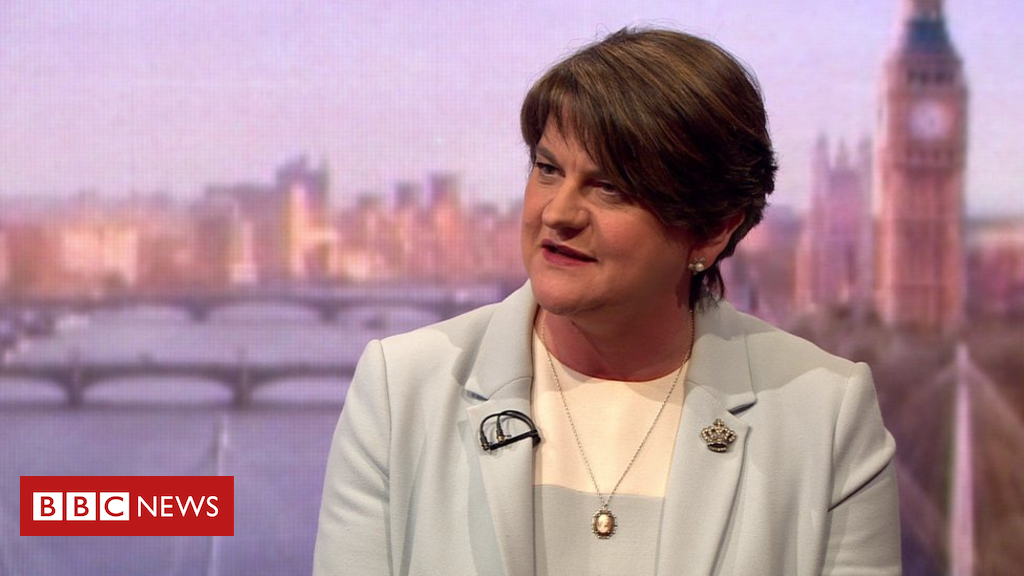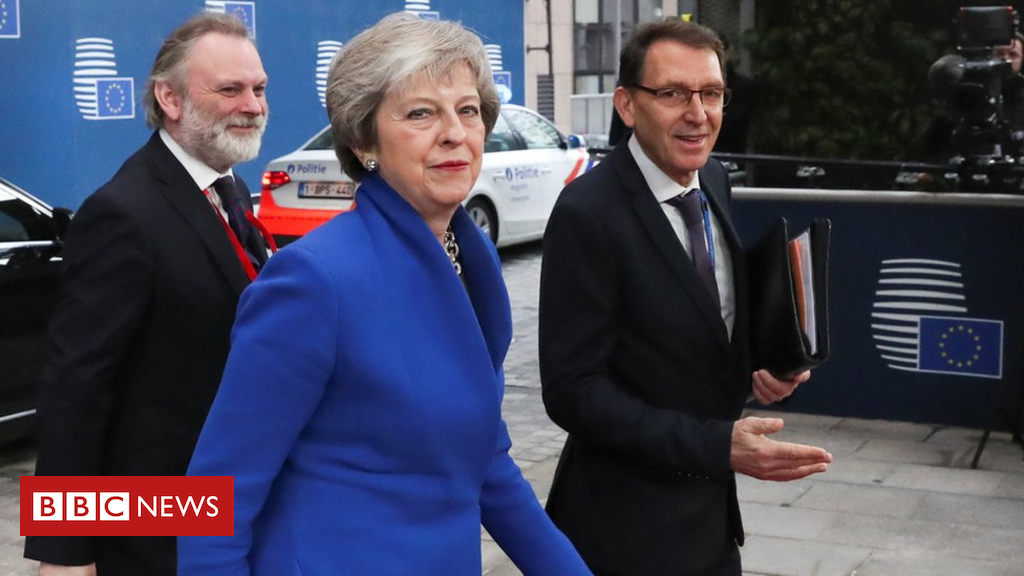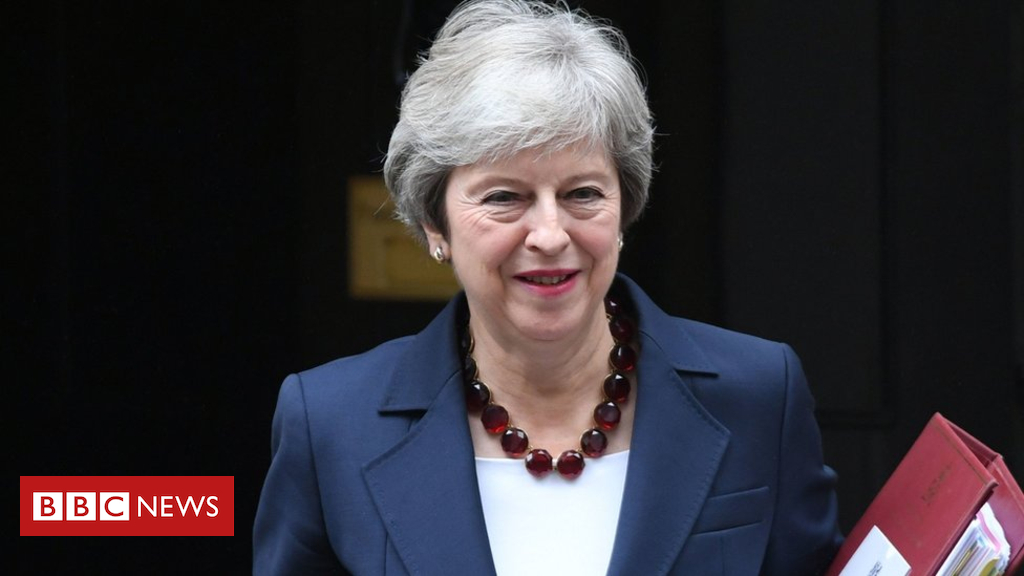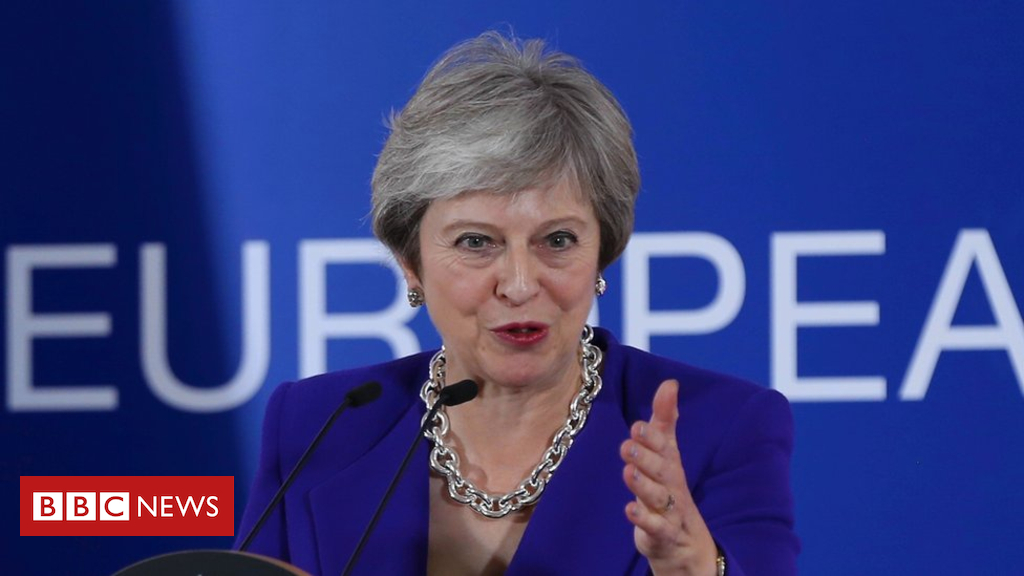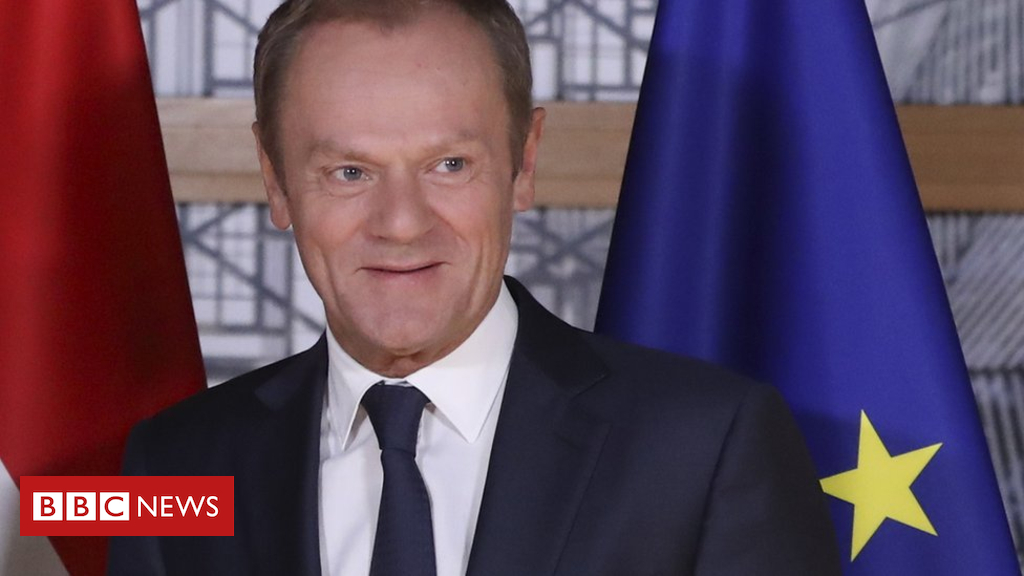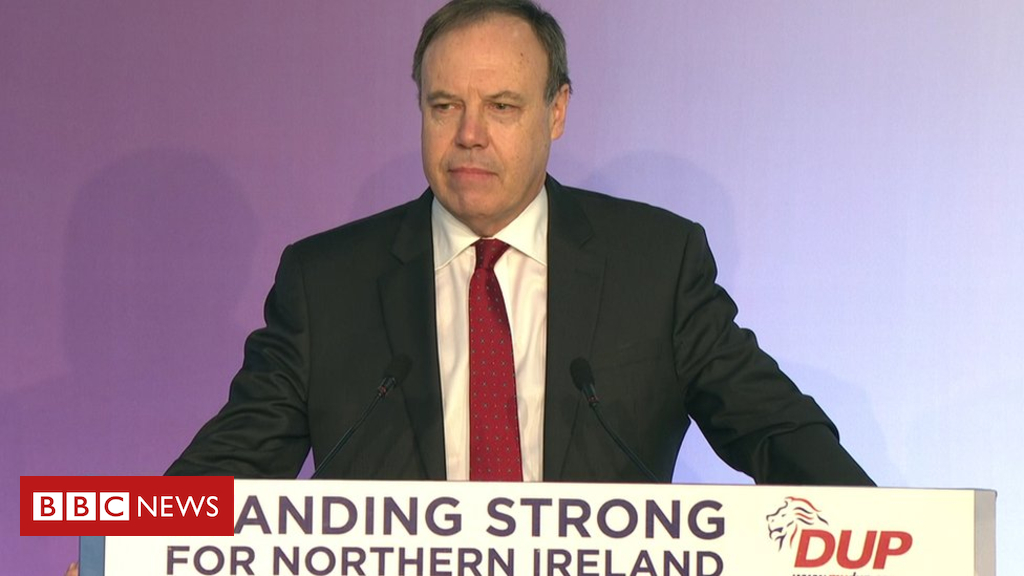 Image copyright Getty Images Image caption The future management of the Irish border is one of three main priorities in UK-EU Brexit talks
Image copyright Getty Images Image caption The future management of the Irish border is one of three main priorities in UK-EU Brexit talks
A hard border on the island of Ireland can be avoided by using “established” technology and “modifying” existing arrangements, Brexiteer Tory MPs say.
The European Research Group said the issue had been allowed to “frame” the talks but need not block a trade deal.
They call for “effective co-operation” between Belfast and Dublin to address smuggling concerns and extra customs forms to be included in VAT returns.
The EU has insisted on a “backstop” to ensure the single market is protected.
Both the UK and the EU want to avoid a return to physical checks at the Northern Ireland border, but have yet to agree how this can be achieved.
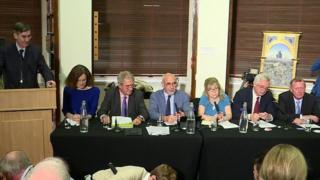 Image caption Two former Northern Ireland secretaries were among Tory MPs endorsing the proposals
Image caption Two former Northern Ireland secretaries were among Tory MPs endorsing the proposals
The report acknowledges a range of new checks will be needed on goods passing across the 310 mile border between Northern Ireland and the Republic of Ireland after Brexit, including extra customs declarations and declarations of origin as well as sanitary, phytosanitary and product compliance procedures.
Among the proposals put forward in the document to deal with these are:
Extra customs declarations should be incorporated into existing system of VAT returns Simplified customs procedures for the majority of cross-border trade Trusted trader-type schemes for large companies Equivalence of UK and EU regulations for agricultural produce Declaring the island of Ireland a Common Biosecurity Zone
The report concluded: “The proposals can be realised within the existing legal and operational frameworks of the UK and EU, based on the mutual trust on which regular trade depends.
“They do nothing to alter the constitutional position of Northern Ireland and do not violate the principle of consent of the enshrined in the Belfast Agreement.”
Are Tory MPs set to move against Theresa May?
By BBC political editor Laura Kuenssberg
There is massive frustration with her leadership, her position on Chequers and the way her proposals tuck the UK closely into the EU in perpetuity. And yes, there are some MPs who want to see her gone immediately.
However senior voices in the European Research Group – yes them – are adamant that it is not the time to try to oust the PM. It would be “stupid”, one told me last night.
Imagine in these critical weeks of the Brexit negotiations if the UK started to try to change the prime minister.
Right now those jostling to remove her know they don’t have any guarantees they would have the numbers to force her out, even though they may well be able to pull together enough MPs to submit letters to the chair of 1922 committee to trigger a contest.
Read Laura’s blog
John Campbell, the BBC’s Northern Ireland business and economics editor, said the document offered more detail than before and put forward a number of “plausible technocratic solutions”.
But he said they placed a lot of store on the EU agreeing to mutual recognition of standards and the UK having access to its VAT system – which was far from clear.
Former Northern Ireland First Minister Lord Trimble dismissed suggestions the Good Friday agreement could be put in peril by Brexit, saying fears of a “reversion to violence were wrong”.
“There is no serious threat from violence because we have sorted that issue,” he said.
Former Brexit Secretary David Davis said the proposals were “fabulously practical” and could “unlock” the current dispute over the PM’s Chequers proposals – which scores of Tory MPs have said they cannot support.
Both Mr Davis and Jacob Rees-Mogg, the ERG’s chair, dismissed talk of a leadership challenge to the prime minister – after it emerged the issue was discussed openly by Tory MPs at a meeting on Tuesday night.
“We’ve got a very good prime minister,” Mr Davis said.
“I disagree with her on one issue, it’s this issue. She should stay in place because we need stability, and we need decent government as the backdrop for what we’re doing in the coming next six months.”

